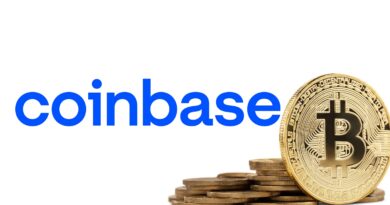Digital Euro to Replace Cash and Deposits Says Crypto News
Imagine waking up one day and hearing that paper money—your coins and banknotes—has an expiration date. Sounds like a scene from a sci-fi movie, right? But in Europe, that future may not be too far off. The European Central Bank (ECB) is actively developing the digital euro, and according to experts, it could eventually replace both cash and traditional bank deposits.
So, What Exactly Is the Digital Euro?
The digital euro is a proposed central bank digital currency (CBDC). Unlike Bitcoin or Ethereum, this wouldn’t be a decentralized cryptocurrency. Instead, it would be a digital form of the euro directly issued and managed by the ECB. Think of it as cash—not in your wallet, but in a government-controlled app on your phone.
Key Points About the Digital Euro:
- Issued and controlled by the ECB
- Not a cryptocurrency like Bitcoin
- Could replace physical banknotes and even your bank deposits
- May be tracked and monitored in real-time
Why the Push for a Digital Euro?
There are several reasons behind the ECB’s interest in launching a digital euro:
- Declining use of cash: More people prefer card or mobile payments, especially post-pandemic.
- Competing with private cryptos: CBDCs are seen as a way to offer a stable and government-backed alternative.
- Preventing financial instability: Governments want to retain control over the monetary system.
But while the digital euro promises convenience, many are questioning what we might lose in the process.
Could It Replace Your Bank Account?
According to Jonas Gross, chairman of the Digital Euro Association, the digital euro may not just be a supplement to cash—it could fully substitute banknotes and even traditional banking deposits in the long run. That’s a big shift.
If you’re wondering how this might affect you, think about how you interact with your money today. You might use a bank account for savings, checking, or just storing emergency funds. With a digital euro, all of this could be consolidated into one central wallet managed by—or through—the central bank.
What That Could Mean for You:
- Less reliance on private banks for basic services
- A new, government-run option to hold your funds
- Potentially more oversight and tracking of your financial transactions
You might be asking yourself: Isn’t my money already digital? It’s true, most of us rarely deal in cash anymore. But your money now sits in commercial banks. With a digital euro, the central bank would become your account keeper. That’s a huge shift in financial power.
A Double-Edged Sword?
The digital euro isn’t without controversy. One of the biggest concerns? Privacy.
Unlike paper cash, which is anonymous, a fully digital currency leaves a data trail. If every payment you make is recorded, governments could closely monitor consumer habits. Skeptics worry we’re heading into a “Big Brother”-style economy.
Let’s break it down further.
Pros of the Digital Euro:
- Fast and secure payments
- No need for physical cash handling
- A government-backed alternative to volatile cryptocurrencies
Cons to Consider:
- Reduced privacy: Every transaction may be tracked
- Government control over personal financial decisions
- Could undermine traditional banks
If you value privacy in your financial dealings, the digital euro might raise some red flags.
The Future of Banking: Convenience or Control?
Let’s face it: technology is already changing how we manage our money. From contactless payments to mobile banking apps, many of us enjoy the speed and simplicity. The ECB sees the digital euro as an evolution of this trend. But critics worry that convenience could come at the cost of control and freedom.
Here’s a thought: If people pull their funds from commercial banks and shift to digital euro wallets, banks may lose their ability to lend money. This could trigger big changes in how the banking system functions.
This idea has been echoed by several financial experts. Even legacy investors like Ray Dalio warn about the implications of such shifts in money management. They point out how control over digital money could shape central banks’ reach over the economy—and over people’s choices.
What Does This Mean for Crypto?
You might think the digital euro poses a threat to crypto like Bitcoin. Ironically, it may do the opposite.
Certain parts of the crypto community argue that the arrival of CBDCs like the digital euro may actually boost demand for decentralized digital money. Why? Because people may turn to Bitcoin, Ethereum, or privacy coins to protect their privacy and regain control over their transactions.
One good example appeared in recent discussions comparing Bitcoin’s resilience vs. traditional finance. Digital Euros might make crypto look even more appealing for those valuing freedom and decentralization.
Get Ready for Change
This isn’t just theory. The ECB is actively developing prototypes and running trials for the digital euro. A pilot program involving selected individuals and companies is already happening. The rollout could begin in the next few years.
What can you do to prepare?
- Start learning about CBDCs—how they work and how they differ from cryptocurrencies
- Pay attention to public consultations or policy updates from the ECB
- Consider diversifying your assets across traditional banks, digital wallets, and even crypto
A changing financial system doesn’t have to catch you off guard. Think critically, stay informed—and keep asking questions.
If you’re exploring different financial strategies, you may also want to explore secure Bitcoin wallets or read about CBDCs versus cryptocurrencies to weigh your options.
Final Thoughts
The digital euro might sound like a convenient step forward. But it’s also a crossroads for how we define money, privacy, and control. As Europe moves ahead with its digital currency, it’s important to ask: How much control do we want to give up for convenience?
The decision isn’t just about how we pay for coffee. It’s about who holds the keys to our money—and our freedom.
Before you convert your euros into a digital wallet, ask yourself this: Do you trust the same institutions that manage your currency to also manage your data?
Questions like these are shaping the future of global finance. Are you ready?









